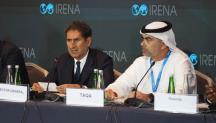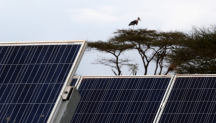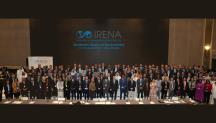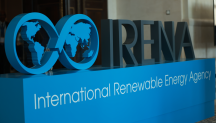

Renewing Africa’s Energy Future
Newsletter
A side event, jointly organised by the International Renewable Energy Agency (IRENA) and the Government of Mozambique during the Rio+20 conference highlighted the role of renewable energy in meeting the growing energy demand in Africa. The event brought together some 300 policy- and decision makers. The event also had ministerial participation from Burkina Faso, Cape Verde, Gambia, Mali, Morocco, Mozambique, Niger, Sierra Leone, South Africa, Sudan, Swaziland, Uganda, the UAE and Brazil (the Rio+20 host country). Other high-level participants include representatives of regional and international organisations.
Africa accounts for 15 per cent of the world’s population but for only 5 per cent of global primary energy use. Some 590 million people on the continent have no access to electricity. Yet the continent possesses abundant renewable energy resources that could spur sustainable economic growth and social development.
Discussions at the high-level side event centered on how renewables offer Africa an opportunity to leapfrog beyond 20th century development models based on fossil fuels. With its vast untapped potential in hydropower, solar, wind, sustainable biomass and other renewable energy resources, Africa is able to address the challenge of energy access and energy security and ensure economic growth.
H.E. Salvador Namburete, Minister for Energy, Mozambique and the President of IRENA Assembly stated that deployment of renewable energy requires significant upfront investment in most of the countries in the world in general, and Africa in particular. He stressed that access to financing mechanisms is critical if renewable technologies are to be deployed on large scale. In this context, creating funding mechanisms to support development of bankable projects would facilitate harnessing the renewable energy resources.
The speakers emphasized the importance of placing renewable energy as a national priority and allocating adequate budgetary resources for promoting its deployment. They stressed that enabling environments require effective policy and regulatory frameworks. Such frameworks would assist in de-risking investments and in stimulating markets.
IRENA was urged to provide strategic support to enable the transition to a future largely based on renewable energy. “Flexibility of renewable energy technologies and availability of renewable power supply options capable of operating economically even on a small scale is of significance as in many parts of Africa there is no established grid”, said IRENA Director-General Mr. Adnan Z. Amin. “Renewable energy will play an essential role in improving the access of millions to energy, while ensuring energy security and mitigating the existential risk of climate change by reducing emissions.” Participants called upon the international community to partner with African countries to enable them to take advantage of the opportunity presented for modern renewable energy-based economies.
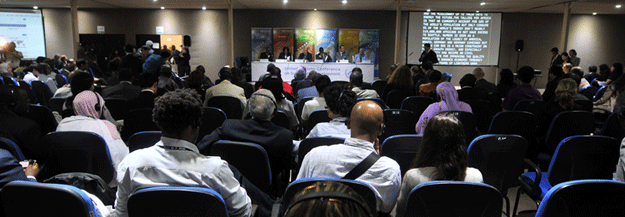
Photo courtesy of IISD RS
